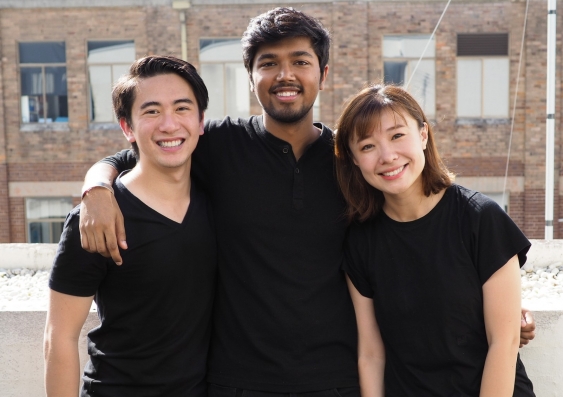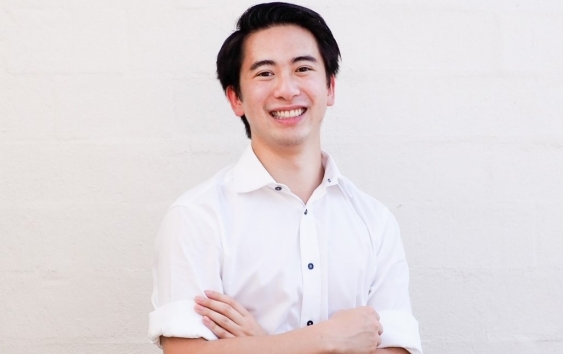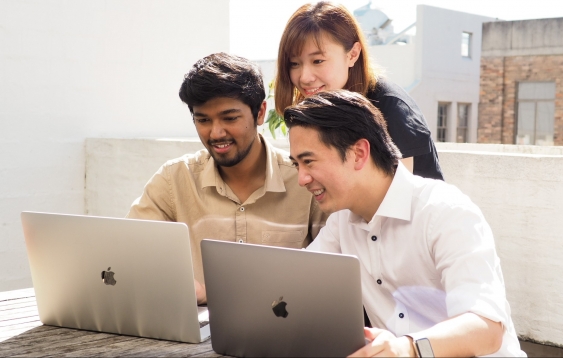UNSW team takes top place in global blockchain competition
The UNSW interdisciplinary team created a service for GPs to help them efficiently find suitable community care for their patients.
The UNSW interdisciplinary team created a service for GPs to help them efficiently find suitable community care for their patients.

UNSW Sydney students have won first place and walked away with a $4000 cash prize in a global blockchain competition.
The interdisciplinary team fought off representatives from 13 other universities including London Business School, Stanford University, Pennsylvania State University and Columbia University to win the global 2018-19 MBA Blockchain Venture Competition.
UNSW Business School student, Jeffrey Lau said, “Blockchain is a digital, decentralised, public register that records online transactions. Using it allows patients (and GPs) to keep track of all their referrals and responses from the providers for greater accountability and peace of mind.
“It was a long, gruelling couple of months where we created our pitch, made videos, made prototypes, websites, marketing materials, logos and industry validation, and had a lot of meetings with doctors and professors.”

Jeffrey Lau is a fourth year student at UNSW Business School, studying Commerce and Information Systems.
Team Sahya, which means ‘helper’ or ‘support’ in the ancient language of Sanskrit, was made up of the following students:
Mr Lau says Sahya is a service that is meant to be used by GPs to help them find suitable community care for their patients efficiently. According to the team, identifying appropriate community care can take months, but the team members believe the whole process could be reduced to minutes using their concept.
Sahya aims to make this possible by partnering with the community service providers and automatically matching patients with the right community services utilising diagnosis carried out by their GPs.
“Beyond being a matching mechanism, Sahya wants to provide patients with a transparent referral experience, as many patients were left in the dark after contacting dozens of services in the current service environment,” Mr Jeffrey says.
The annual competition brings together students in interdisciplinary teams with backgrounds ranging from law and design to medicine and engineering, to develop product ideas and business models.

Mr Lau says, “We are trying to solve a pain point experienced by many Australians including our family members … we want to improve the current community care ecosystem in Australia.”
Snow Li, whose PhD topic is to understand whether the over-complicated care system can create more disadvantage for people who are seeking support, said: “It’s mind-opening for me to see how technology can be part of the solution to my PhD research question.”
The team sees the value of Sahya beyond the competition and say they are working towards developing a prototype and making networks in the care sector to validate their ideas. Team Sahya is also in talks with UNSW Faculty of Medicine to test their prototype before it comes to market for everyone to use.
The contest was hosted by Consensys, a global blockchain software technology company with headquarters in Brooklyn, New York.
Along with receiving a cash prize of $4000 the UNSW Sydney team will be introduced to the ConsenSys’ incubation arm for possible funding opportunities.